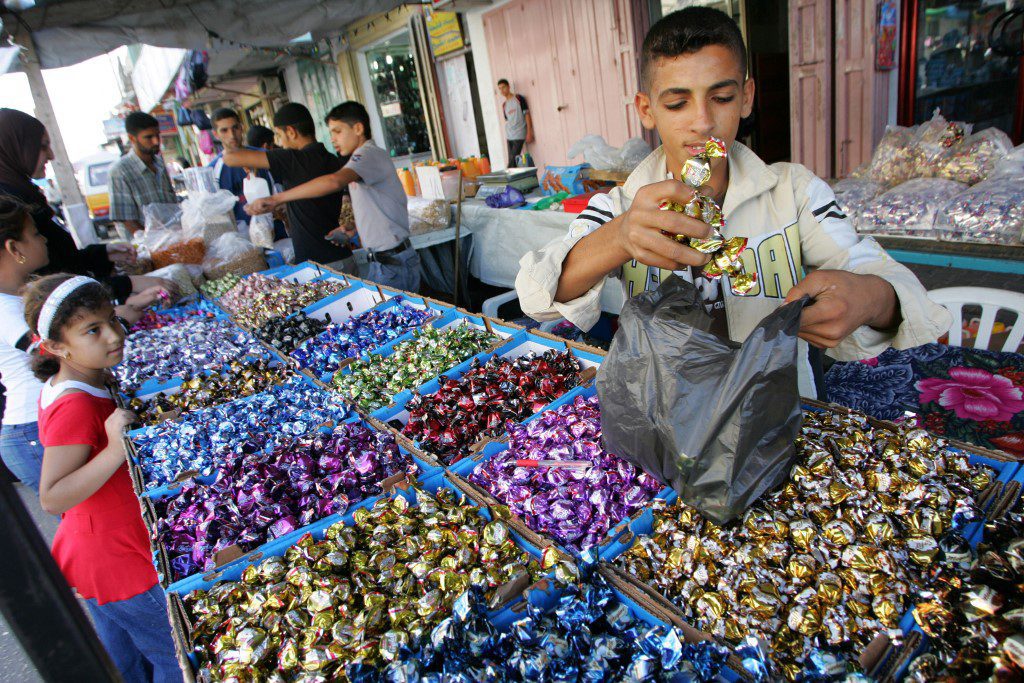
The annual cycle of holidays plays an important role in the lives of practicing Muslims. The Islamic calendar has twelve months, like the Christian one. However, the Islamic calendar is a lunar instead of a solar calendar, and is eleven days and a few hours shorter than the solar calendar.
As a result, each year, feasts are held eleven days earlier than the year before; once every approximately thirty years, the Islamic calendar achieves a full cycle of seasons.
The most important Islamic feast is the Greater Festival (al-Id al-Kabir), also known as the Festival of Sacrifice (Id al-Adha). This falls on the tenth day of the month Dhu al-Hijja – the month when the pilgrimage to Mecca is made.
On that day, Muslims remember that Ibrahim (Abraham) was given permission by God to sacrifice a lamb instead of cutting the throat of his own son, Ismail (Ismael). On this day, Muslims all over the world sacrifice one or several lambs. Some of the meat is given to the poor.
During Ramadan, Muslims are not allowed to eat or drink between sunrise and sunset (the sick, pregnant women and soldiers at the front are exempt). Sometimes Ramadan falls in the summer, and then it is much harder to comply with these regulations. After sunset, food and drink flow in abundance until late in the evening and the atmosphere is elevated (iftar).
It starts with eating a few dates and drinking milk. Ramadan ends with the Festival of Breaking of Fast (Id al-Fitr), during which children are given presents. On the twelfth day of the month Rabi al-Awwal the birth of the Prophet is celebrated (Mawlid al-Nabi).

